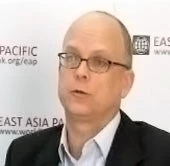 |
| Dean Cira will answer some of your questions in a video |
Urbanization itself cannot guarantee economic growth, but it does appear to be an inevitable process on the way to development: no country has achieved high income status without first urbanizing, and nearly all countries become at least 50% urbanized before fully reaching middle income status.
The trick is in how to manage this process in a way that plays up the benefits and minimizes the challenges it brings.
When I was a little child, we lived in a 30m2 house in the suburbs of Hanoi, Vietnam, with intermittent supplies of power and clean water. But I enjoyed playing on the quiet and clean street in front of my house. Twenty years later, my whole neighborhood has been nicely renovated; there’s enough electricity to run all appliances in my house, including two air conditioners. But I get stuck in traffic every day on my way to work, and the smog is so thick I can hardly breathe, even with a mask on my face.
Urbanization has arrived to my hometown with both advantages and challenges. However, noises, heavy traffic, and air and water pollution are not unique to Hanoi. They can be observed in many cities in emerging countries all over the world (such as China, India, Brazil, Indonesia, Mexico, the Philippines, or Nigeria). The Vietnam Urbanization Review notes that if these challenges are well managed, they will allow cities like Hanoi to retain its unique charm and livability while enjoying the benefits that urbanization brings.
Do you have any questions on how to ease traffic congestion? Or dealing with high housing prices in your city? Do you want to share your own experiences? What are your concerns when moving in or out of a city?
Our urban expert, Dean Cira, is here to answer your questions.
Send your question now using the comment function below to ask him and he’ll address on video five of all the questions received. We’ll take questions until the end of Wednesday, June 20. You can also join the conversation on Twitter by sending your questions to @worldbankasia.
|
Data from World Bank |


Join the Conversation